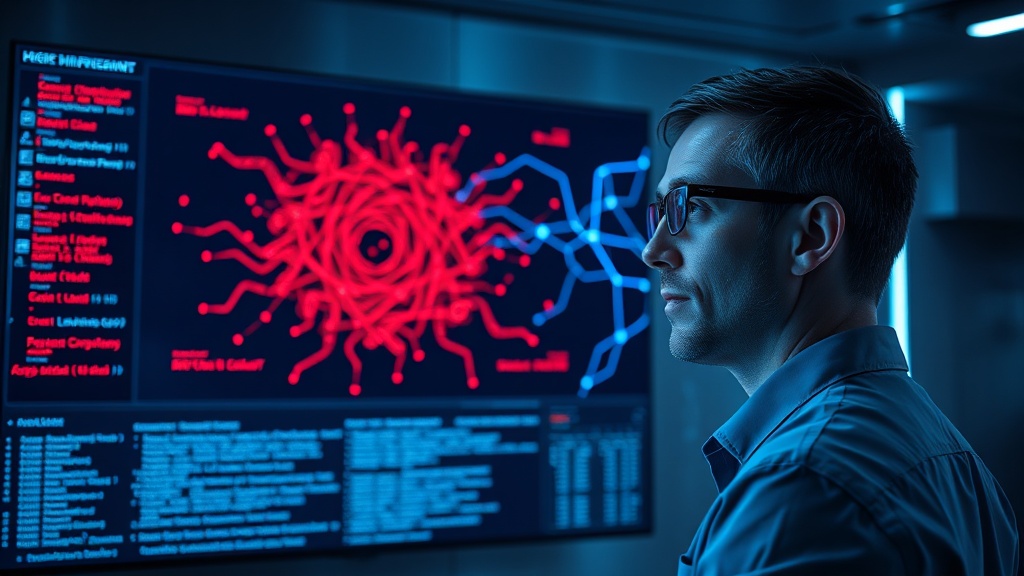
AI Agents: The Next Leap in Business Transformation and Security
We’re witnessing something pretty remarkable in the world of artificial intelligence right now. AI agents, these sophisticated autonomous systems powered by cutting-edge machine learning, aren’t just changing how businesses operate. They’re completely reshaping what it means to run an intelligent organization.
Think about it: we’ve moved way beyond simple chatbots and basic automation. Today’s AI agents can make independent decisions, adapt to complex situations, and learn from their experiences. They’re becoming digital teammates rather than just tools, and that shift is having massive implications for everything from marketing personalization to cybersecurity defense.
Beyond Simple Automation: The Agentic AI Revolution
For years, companies have been using AI to handle repetitive tasks, crunch data, and streamline workflows. We’ve seen this play out everywhere, from recommendation engines on shopping sites to customer service bots. But what’s happening now is fundamentally different.
Bernard Marr’s recent analysis highlights how agentic AI is pushing organizations well beyond traditional automation boundaries. Instead of just processing requests or providing insights, these agents actually think, reason, and act almost like human colleagues. They can navigate complex environments, make judgment calls, and continuously improve their performance based on outcomes.
This evolution is enabling businesses to adopt more agile, interconnected operational models. AI-driven workflows are becoming the norm, where artificial intelligence doesn’t just assist decision-making cycles but actually leads them in many cases.
Adobe’s Marketing Revolution: Personalization at Scale
When you want to see agentic AI in action, Adobe’s new suite of AI agents within its Experience Platform is a perfect example. Adobe’s latest launch is designed to supercharge personalized advertising and marketing campaigns, helping businesses deliver incredibly tailored customer experiences without the manual overhead.
Companies like The Hershey Company, Lenovo, and Wegmans Food Markets are already integrating these agentic solutions into their marketing operations. What makes Adobe’s approach particularly smart is its modular design. Instead of one massive, do-everything agent, they’ve created specialized agents that focus on specific business needs: audience segmentation, journey optimization, experimentation, site performance, and product support.
These agents don’t just follow predetermined rules. They craft dynamic, real-time experiences by learning from data and user interactions as they happen. Adobe has also formed strategic partnerships with industry heavyweights like Cognizant, Google Cloud, Medallia, and Havas to embed AI directly into content and experience creation workflows. This approach is enabling companies to improve efficiency while unlocking new levels of creativity and responsiveness that simply weren’t possible before.
Fighting Fire with Fire: AI-Powered Cybersecurity
While businesses are racing to implement personalization and operational improvements, the cybersecurity landscape is becoming increasingly dangerous. The reality is that cyber attackers are using AI too, particularly for mass phishing campaigns and sophisticated malware development. Traditional security platforms that rely on static rules are struggling to keep pace with these evolving threats.
Enter AegisAI, a startup founded by former Google Safe Browsing and reCAPTCHA executives Cy Khormaee and Ryan Luo. Their $13 million funding round is backing an approach that deploys networks of real-time autonomous AI agents to inspect, analyze, and neutralize email threats before they reach end users.
What’s fascinating about their approach is that these agents aren’t confined to predefined security rules. They learn and self-tune continuously, adapting to new attack variants in real time. This represents a fundamental shift from reactive to proactive security, and from rules-based systems to adaptive, intelligent defense mechanisms. For businesses dealing with evolving cybersecurity threats, this means better protection and significantly less time spent responding to successful breaches.

The Human Element: Collaboration and Control
Despite all this technological sophistication, implementing agentic AI effectively requires more than just cutting-edge algorithms. Forbes contributor Joe McKendrick emphasizes the importance of collaborative approaches in agentic AI development. Getting a broader base of stakeholders involved in the development process helps reduce algorithmic bias and makes these systems more useful and equitable for both organizations and their customers.
Famularo, an advocate for open agentic AI processes, makes an excellent point about maintaining human oversight. Even when AI agents encounter uncertain situations or ambiguous data, their ability to flag issues and provide available information to human decision-makers can be incredibly valuable. This approach saves time while keeping humans in control of critical decisions.
This is where many companies need to rethink their processes. Engineering AI agents requires integrating them as digital teammates rather than just sophisticated tools. The most successful implementations happen when AI agents are learning from their outcomes, providing feedback, and continuously adapting to augment human capabilities rather than replace them.
Looking Ahead: Opportunities and Challenges
The shift to agentic AI presents enormous opportunities. Companies that can quickly pivot to agentic models will likely outpace competitors through enhanced agility, better personalization, and smarter operational intelligence. We’re already seeing this play out across industries, from customer support to product development, supply chain management, and beyond.
But this transformation isn’t risk-free. Issues around AI bias, ethical use, transparency, and the changing nature of work all require ongoing attention and innovation. The companies that succeed will be those that maintain close collaboration between technical teams, business leaders, and external partners while keeping humans involved at every critical decision point.
What’s particularly exciting about AI’s current evolution is that we’re not just seeing automation of actions. We’re witnessing the rise of smarter, more capable organizations that are genuinely prepared for the future of digital business. The companies investing in agentic AI today are building the foundation for competitive advantages that will compound over the coming years.
The AI agent story is really just getting started, but the next chapters promise to completely redefine what’s possible in technology, security, and human creativity. For businesses willing to embrace this transformation thoughtfully, the potential rewards are substantial. The key is balancing innovation with responsibility, ensuring that as these systems become more autonomous, they remain aligned with human values and business objectives.
Sources
- “AI Agents Are About To Reshape The Future Of Business”, Bernard Marr, Forbes, September 8, 2025.
- “The Work That Goes Behind AI Agents”, Joe McKendrick, Forbes, September 10, 2025.
- “Adobe Launches Suite Of AI Agents, Agentic Partnerships”, MediaPost, September 11, 2025.
- “Google’s former security leads raise $13M to fight email threats before they reach you”, TechCrunch, September 10, 2025.





































































































































